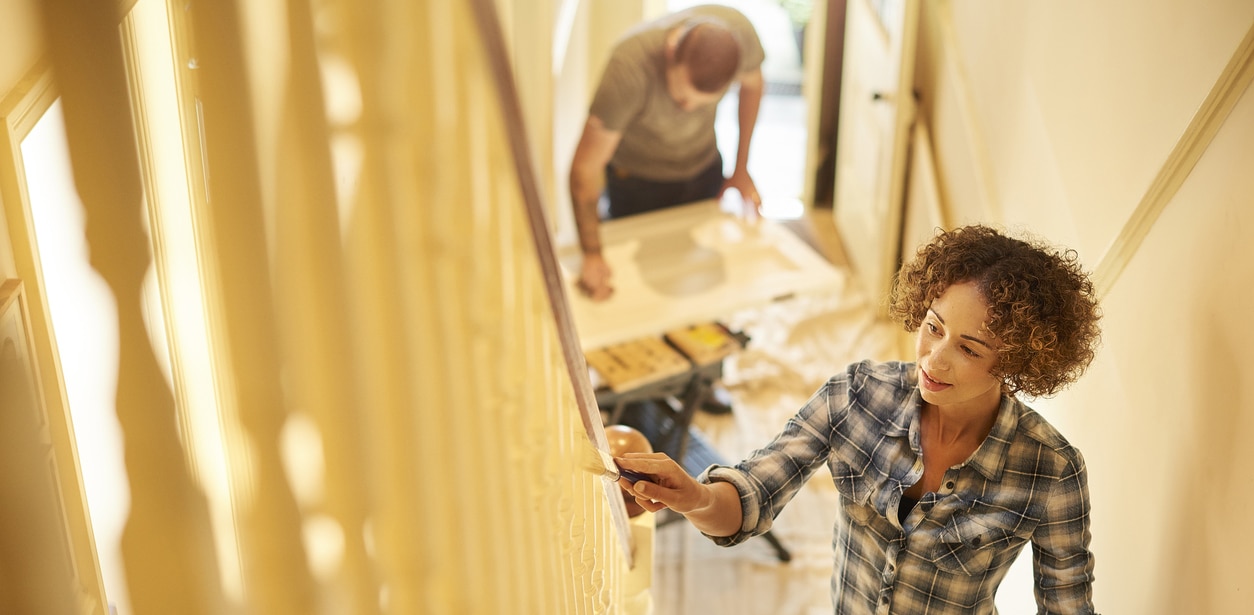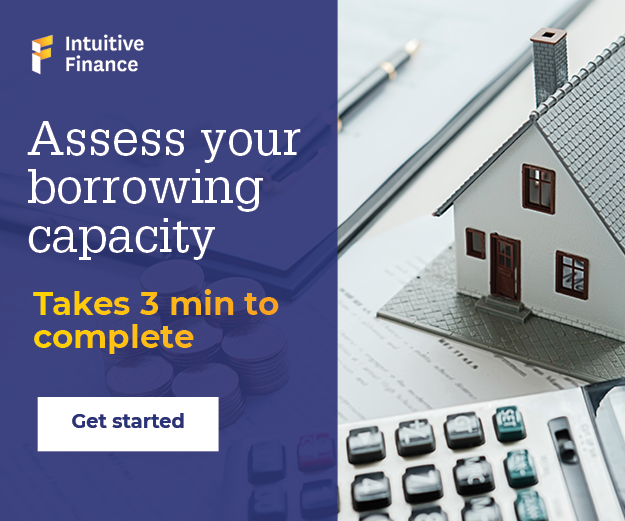Renovate or sell – what’s your best option?
The popularity of renovating is growing every year, no doubt helped by the plethora of reality television shows like The Block.
But, like so many other things in life, renovating is not necessarily the same as it appears on our television screens.
It can be more expensive, and it generally takes longer than expected, too.
So, when faced with the decision to sell up or renovate, what is the best strategy?
Let’s consider the pros and cons, shall we?
What are the benefits of renovating?

Every property gets old – that’s just a fact.
But the vast majority of properties, via a number of different owners, are brought up to modern standards and kept in good repair through renovating over the decades.
If they’re not, well, there will come a time when those properties become obsolete and are demolished.
However, just because a property suits your purposes today, it doesn’t mean it will stay that way forever.

That’s because our lives change and we might get married, or have children, and that two-bedroom house we bought when we were 25 no longer cuts the real estate mustard.
But rather than selling up, many homeowners decide to renovate instead.
One of the main reasons is because of the high entry and exit costs in real estate, which involves stamp duty on the way in and sales commission on the way out.
A well-costed and well-managed renovation can convert a two-bedroom home into three-bedroom one or add that extra bathroom that a growing family needs for potentially a fraction of the cost of selling up and moving somewhere new.
The caveat to that is that would-be renovators must ensure they are not overcapitalising and end up with the “most expensive” house in the suburb because of the tens of thousands of dollars they overspent on the renovation.
Key benefits of renovating over selling can include:
- Improving the comfort of the home
- Improving the functionality of the home
- Lowering energy costs via upgrading to more efficient appliances
- Increasing the value of your home
What are the risks of renovating?
As mentioned above, one of the biggest risks when renovating is overcapitalisation.
Overcapitalisation is when you spend far more on the renovation than the property will correspondingly increase in value.
For example, say you have a $800,000 mid-range house in a suburb where the majority of houses sell for between $650,000 and $750,000.
Instead of moving, you decide to upgrade the kitchen, bathroom, and then get a bit carried away and move some walls around to create an additional living room.
Several months later you’ve spent $100,000 on the renovation but the value of the property has only increased by $50,000 because an additional living room generally doesn’t improve values – more bedrooms do.
That would be a classic case of overcapitalisation and you’d have to wait for quite a few years if you wanted to get your money back when you sold it.
Another major risk is the fact that most renovations take much longer than planned.
This can be because tradesmen are busy on other projects or there are unexpected waiting periods for new appliances for the kitchen.
If you have to move out during a structural renovation, for example, time delays will vastly increase your holding costs as you’ll need to pay additional rent where you’re staying in the interim as well as your mortgage repayments as well.
The most successful renovators create detailed budgets and stick to them, but they also include contingency funds for cost and time over-runs.
They also understand the value of using professionals who will complete tasks efficiently and to a higher standard that they could do themselves.
Some tips for renovating to add value and avoid overcapitalisation include:
- Set a budget (and don’t go over it)
- Look for low cost improvements – e.g. new light fittings, a fresh coat of paint, new fixtures, etc.
- Connect with agents and find out what homebuyers are looking for in your area
- Add space and functionality – whether it’s knocking down walls, adding better lighting to make a room seem brighter, or building storage spaces like wardrobes to make a room feel less cluttered.
It’s vitally important to also understand what adds value and what does not.
For example, a common renovator mistake is to install a backyard swimming pool believing that it will increase the value of your property.
The issue with pools is that they require a lot of maintenance, which can be a potential turn-off for future buyers.
On the other hand, one of the smartest and most cost-effective renovation tricks is painting. It is amazing what a coat of paint can do to transform the interior of a home with little more than elbow-grease required.
What are the benefits of moving house?
So now we’ve covered off on the pros and cons of renovating and staying put, what about the same for selling up and moving on?

For many people, renovating just isn’t an option, perhaps because the property isn’t suitable, or they just don’t have the desire to do it at all.
Buying a new home is a relatively rare occurrence for most Australians, but when they do, it generally comes with an element of upgrading as well.
This is one of the benefits of selling, you can realise any capital growth in your existing home – especially if you purchased an investment grade property to start off with – and upgrade to a better property, often in a better location.
Another benefit of selling and buying somewhere new is you can accommodate the current, and future, needs of your family without going through the mess of renovating.
What are the downfalls of selling and moving house?
Moving to a new house is one of the most stressful experiences we can endure, which is part of the reason why so many of us choose to stay rather than go!
Another downfall to selling and moving house are the costs involved, which often run into the tens of thousands of dollars.
Some of the costs of selling can include:
- Conveyancing ($1,000 to $2,000)
- Marketing (the sky’s the limit)
- Agent fees (two to three per cent of sale price – for example about $20,000 on a $800,000 home)
- Property styling your house to a sellable standard (property staging companies can charge $5,000 or more depending on the type of furnishings required and the length of time it takes to sell).
Which strategy is right for me?
The question of whether you should renovate, or sell is a very personal one that can only be answered by understanding all of the pros and cons listed in this article.
Renovating can produce solid profits, and upgrade your home, but it is also hard work and can run over time and over budget relatively easily.
Selling up and moving, on the other hand, can be the right decision if it allows you to upgrade your home and your neighbourhood, but it is stressful and there are plenty of costs involved.
Before deciding which strategy is the right one for you, perhaps consider these questions:
- How much work does the current house need to reach the standard I want or need?
- How will I finance renovations/moving?
- How much equity do I have in my current home?
- How will my decision affect my family? Moving potentially means shifting away from friends and perhaps out of your comfort zone. But depending on the type of renovations, living conditions during the project could be adversely impacted.
- Is the state of the current market favourable to selling and buying somewhere else? Remember, if you’re selling and buying in the same market, even if it’s a hot market, you might get a high price for your property, but you’ll have to correspondingly outlay more to buy somewhere else as well.
Intuitive Finance: – the Multi-award Winning Property Investor’s Choice
There are many difference pieces of renovating or selling advice out there and that’s because it really is a very personal decision.
Whether you decide to renovate or sell your property, you must understand all of the costs involved because neither option is overly cheap, and one might be better for your stage of life than the other.
When starting out on your property investment journey, you need to understand which home loan is the best one for you as well as which one is going to offer the best chances of interest rate discounts.
The world of banking and finance can be a pretty daunting one for both novice and sophisticated investors and since our establishment in 2002 we’ve focused on providing outstanding service and business standards.
This approach was vindicated when we were named Victoria’s favourite mortgage broker at the 2015 Investors Choice Awards.
So, if you’re considering renovating or selling your home, why now contact Intuitive Finance today to ensure you have the right information and expert support on your side no matter what stage of the property ownership journey you are on.
The information provided in this article is general in nature and does not constitute personal financial advice. The information has been prepared without taking into account your personal objectives, financial situation or needs. Before acting on any information you should consider the appropriateness of the information with regard to your objectives, financial situation and needs.
- Choosing the right mortgage solution of variable fixed or both - October 8, 2024
- All You Need to Know About Bank Valuations - September 20, 2024
- Getting the Most out of the Spring Property Season - August 26, 2024



